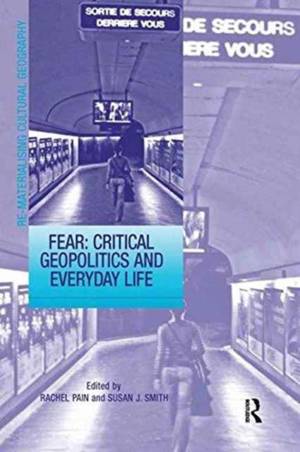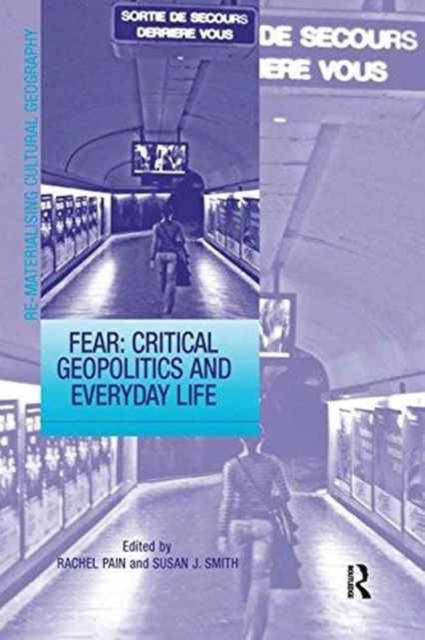
Door een staking bij bpost kan je online bestelling op dit moment iets langer onderweg zijn dan voorzien. Dringend iets nodig? Onze winkels ontvangen jou met open armen!
- Afhalen na 1 uur in een winkel met voorraad
- Gratis thuislevering in België vanaf € 30
- Ruim aanbod met 7 miljoen producten
Door een staking bij bpost kan je online bestelling op dit moment iets langer onderweg zijn dan voorzien. Dringend iets nodig? Onze winkels ontvangen jou met open armen!
- Afhalen na 1 uur in een winkel met voorraad
- Gratis thuislevering in België vanaf € 30
- Ruim aanbod met 7 miljoen producten
Zoeken
Omschrijving
'Fear' in the twenty-first century has greater currency in western societies than ever before. Through scares ranging from cot death, juvenile crime, internet porn, asylum seekers, dirty bombs and avian flu, we are bombarded with messages about emerging risks. This book takes stock of a range of issues of 'fear' and presents new theoretical arguments and research findings that cover topics as diverse as the war on terror, the immigration crisis, stranger danger, global disease epidemics and sectarian violence. This book charts the association of fear discourses with particular spaces, times, social identities and sets of geopolitical relations. It examines the ways in which fear may be manufactured and manipulated for political purposes, sometimes becoming a tool of repression, and relates fear to political, economic and social marginalization at different scales. Furthermore, it highlights the importance and sometimes unpredictability of everyday lived experiences of fear - the many ways in which people recognize, make sense of and manage fear; the extent of resistance to fear; the relation of fear and hope in everyday life; and the role of emotions in galvanizing political and social action and change.
Specificaties
Betrokkenen
- Auteur(s):
- Uitgeverij:
Inhoud
- Aantal bladzijden:
- 280
- Taal:
- Engels
- Reeks:
Eigenschappen
- Productcode (EAN):
- 9781138271487
- Verschijningsdatum:
- 9/09/2016
- Uitvoering:
- Paperback
- Formaat:
- Trade paperback (VS)
- Afmetingen:
- 156 mm x 233 mm
- Gewicht:
- 521 g

Alleen bij Standaard Boekhandel
+ 137 punten op je klantenkaart van Standaard Boekhandel
Beoordelingen
We publiceren alleen reviews die voldoen aan de voorwaarden voor reviews. Bekijk onze voorwaarden voor reviews.











